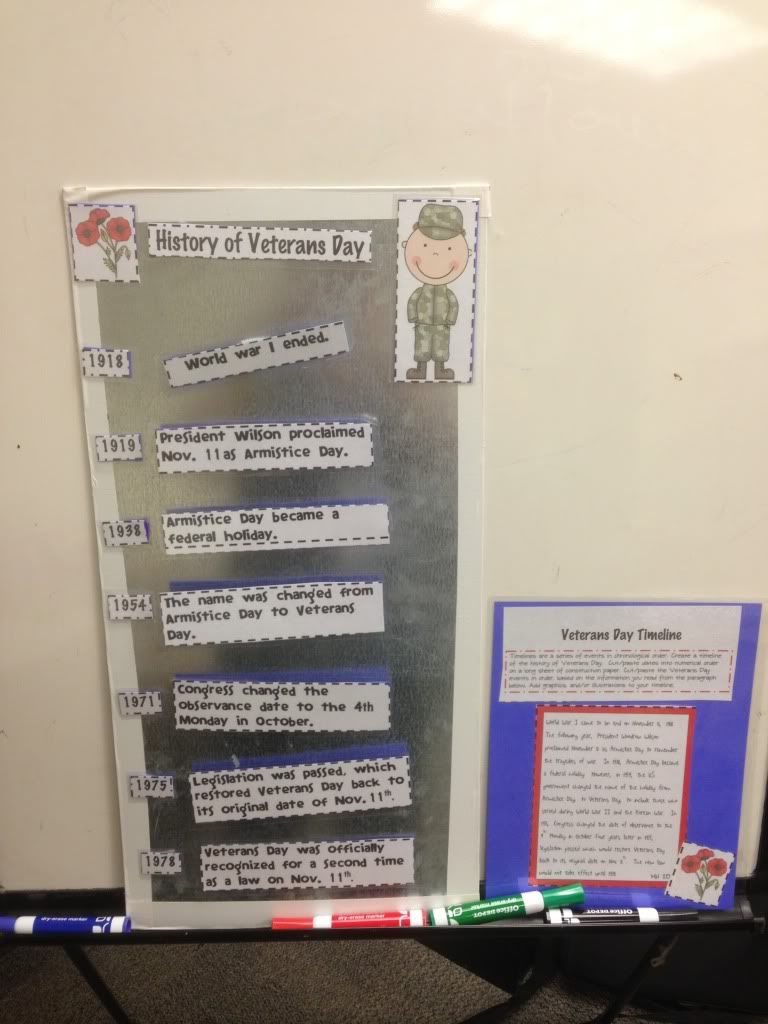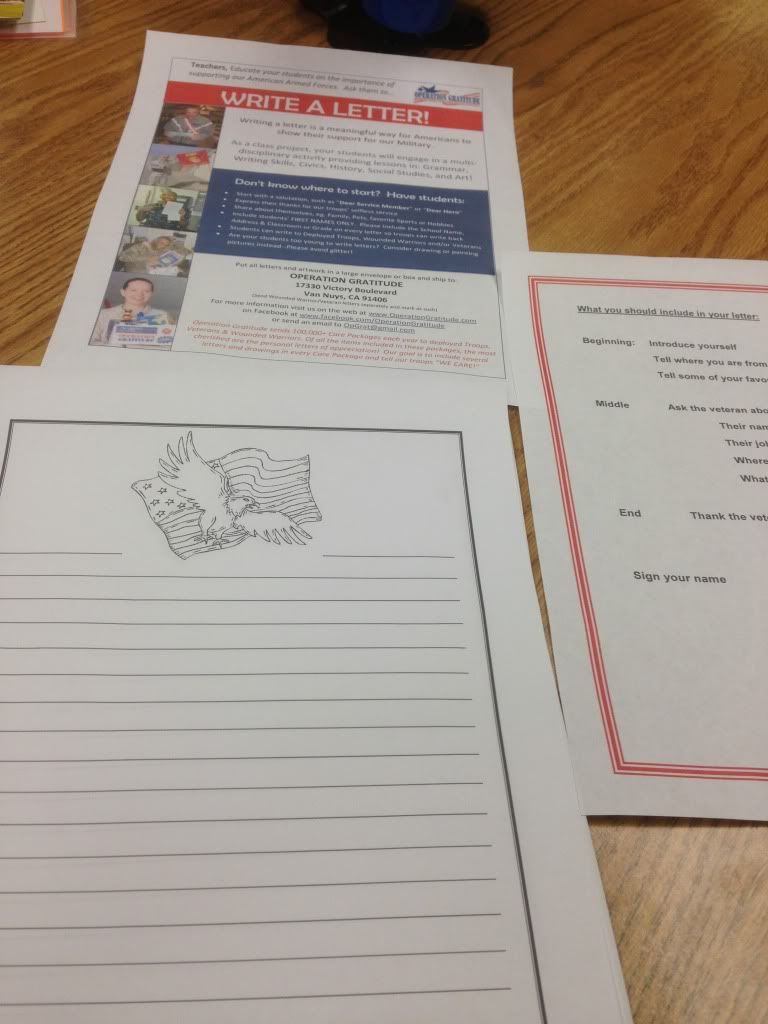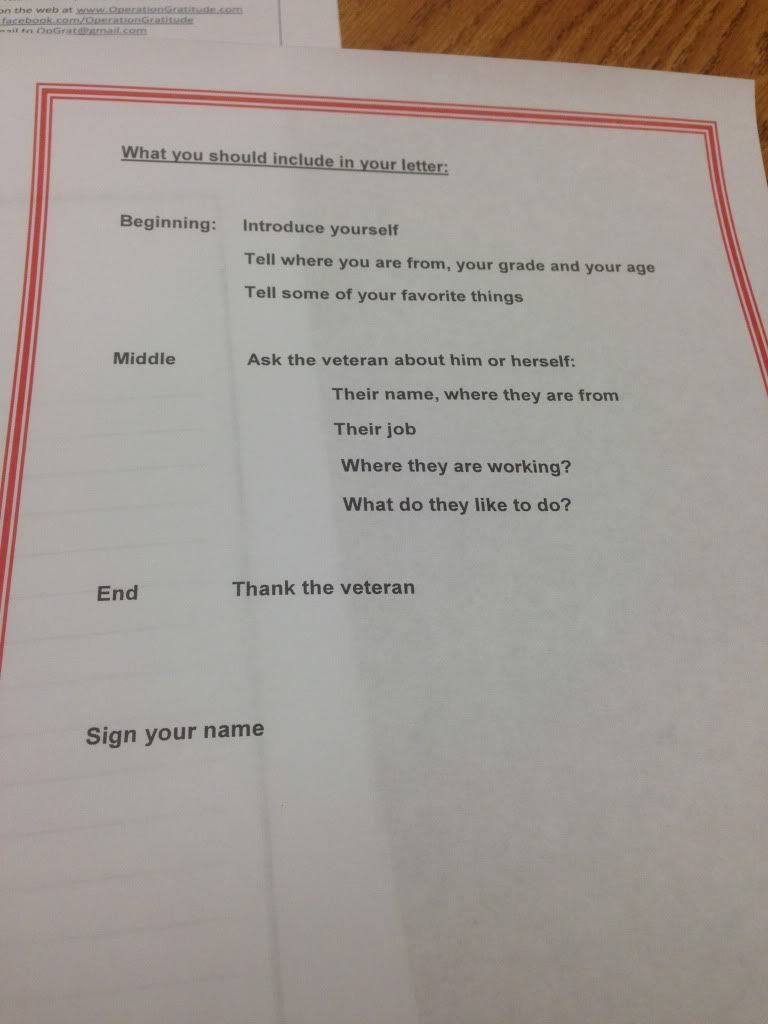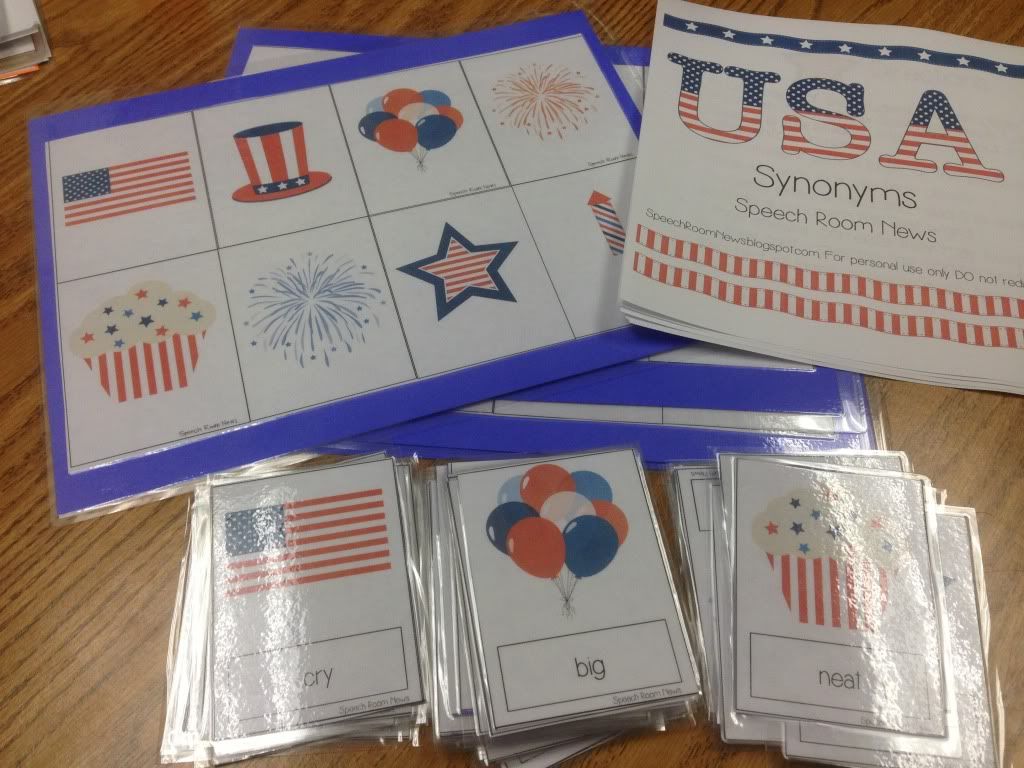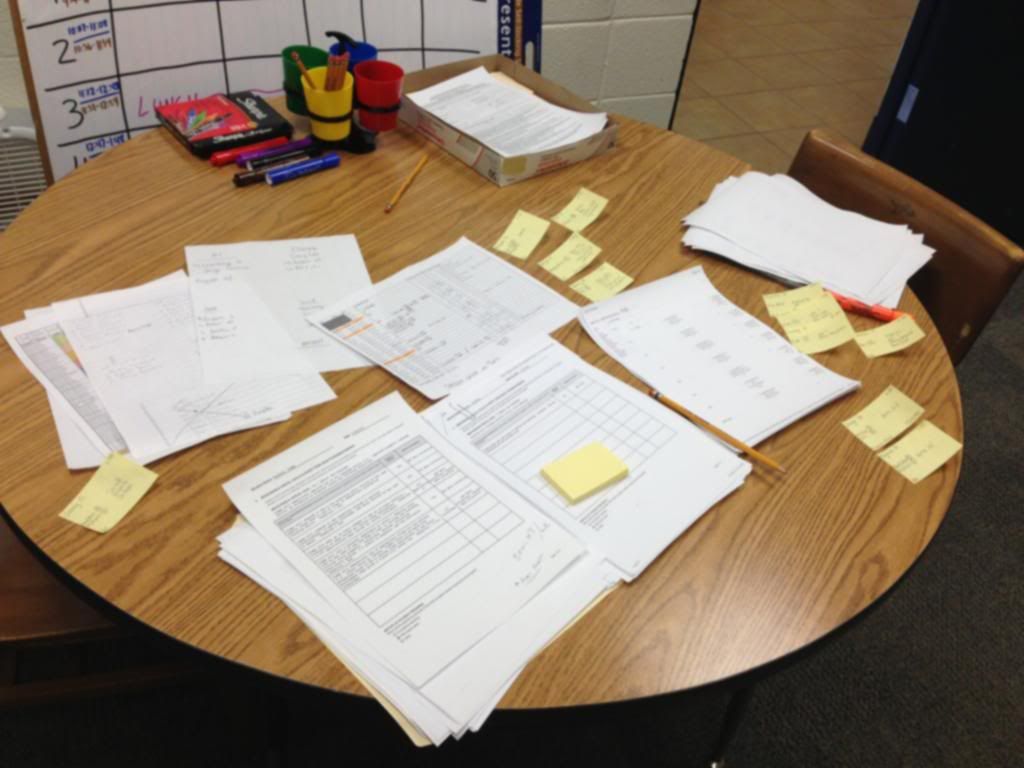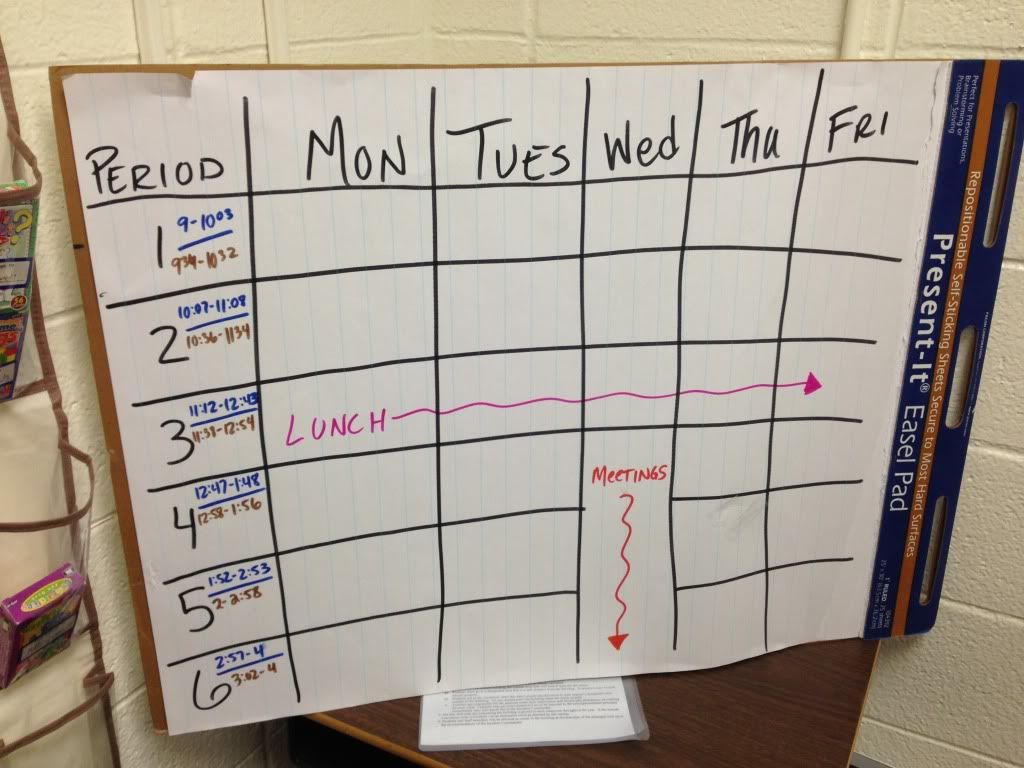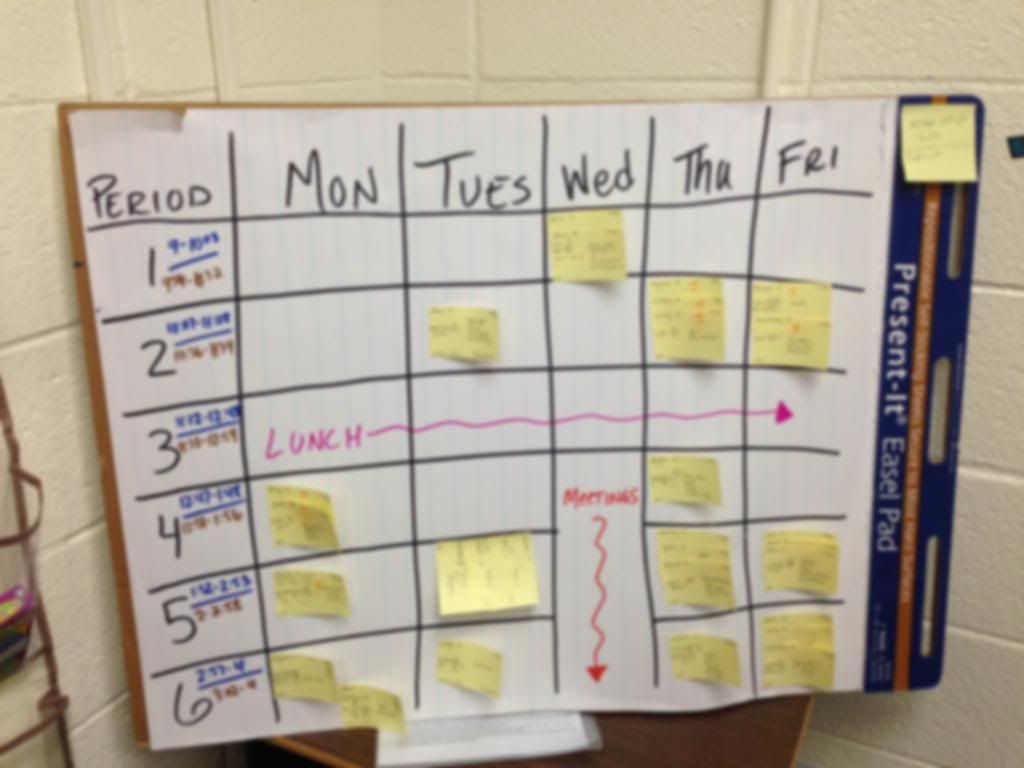So I am going to try to post what materials I am using each week and share my sources. There are so many fun, free (or cheap) resources out there online these days, I feel fortunate to be starting my career in the internet era. Besides, I'd get laughed out of the Sixth Grade Academy if I tried to use some of those outdated old materials that I found in my office.
 |
What the heck is this anyway? |
This week, I have decided to work on Veterans' Day materials, inspired by one of my SLP Heroes at Speech Room News. We are in school on 11/11, but will be at an all-school field trip (to which I say "YAY! Field Trip!" and the more experienced teachers say, "I wish I could call in sick that day."). Thus, the week leading up to Veterans' Day was a good time to cover this theme. That way, we can rock Tgiving for the last 2 weeks of the month before break.
First up, a sequencing activity - Veterans Day Timeline. I read a history of the holiday, get to review vocab terms like "armistice" and "observance", talk about what "federal holiday" means, discuss "wh" questions (why did the name change?) and of course...sequencing and retell. I put the events on magnets for the kids to order them because dude...magnets make everything more fun!
Then I decided have them write letters to the troops, inspired by another Speechy Hero blogger, who suggests letter writing as an excellent speech therapy activity. I downloaded a letter writing tip sheet and a flyer from Operation Gratitude, let the student pick the recipient (Wounded Warrior, currently serving or veteran of a specific war) and we worked on an outline today. I will probably continue these through the month and send off a pile of letters and a care package over Turkey break. Hopefully one or two of my students will get a return letter.
Next, the USA Synonyms game. Not too many of my kiddos have goals specific for synonyms, most are working on "grade level vocabulary" so I was surprised at how challenging this game was. They tend to default to antonyms. I also made them construct a sentence for each word to work on various syntax goals.
Finally, not related to Veterans Day, but I am slowly trying to teach the kids the "EET" method of describing things. We do a lot of guessing games, where I instruct them to start with the "Group" (or category) and slowly work their way through the description, otherwise all I get are vague descriptions containing lots of "things" and "stuff". So I pulled 25 cards from a deck of picture cards, whipped up a set of bingo cards and had the kids take turns being the callers, by describing the pictures using at least 3 of the EET "beads". The hardest part is keeping the other players from yelling the answer out after one clue. But they did enjoy it. It could have also been the magnetic chips/wands I let them use, too. Magnets, man. No one is ever too old for magnet fun!
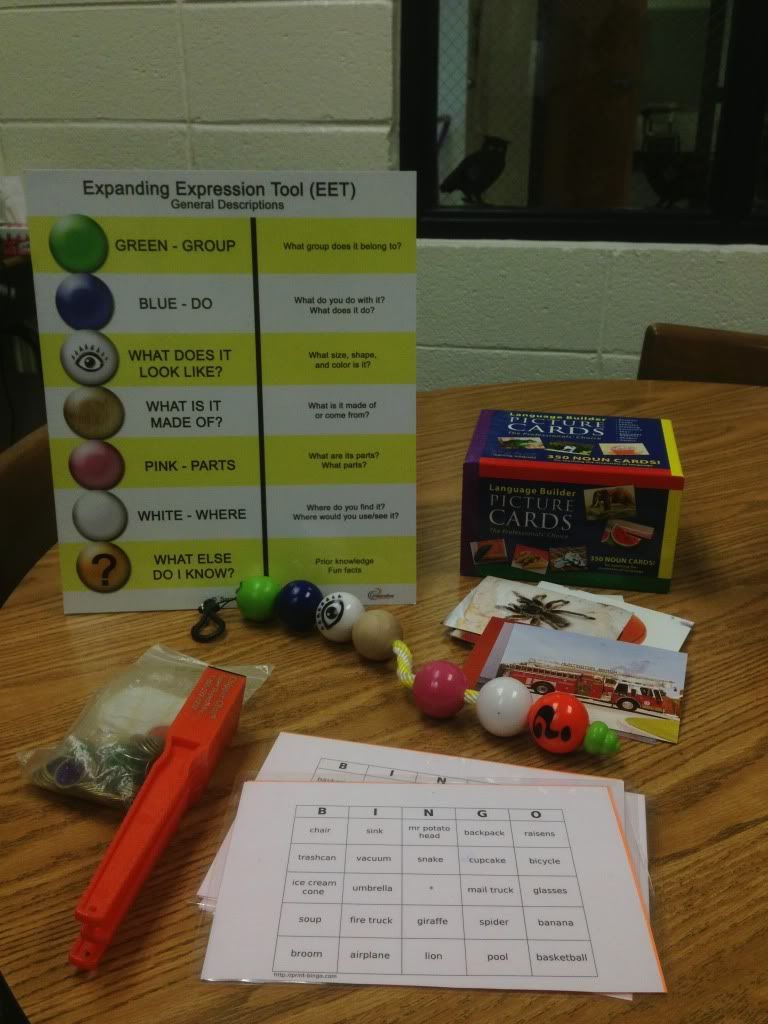 |
| If you look closely, you will see I misspelled raisin. I bring shame to my profession. |
The benefit of having a caseload comprised of mostly 6th graders with language goals is that I can use the same materials over and over all week with minimal tweaking as I go. So by the time I finally nail the perfect session, it's time to put it all away and start over.
